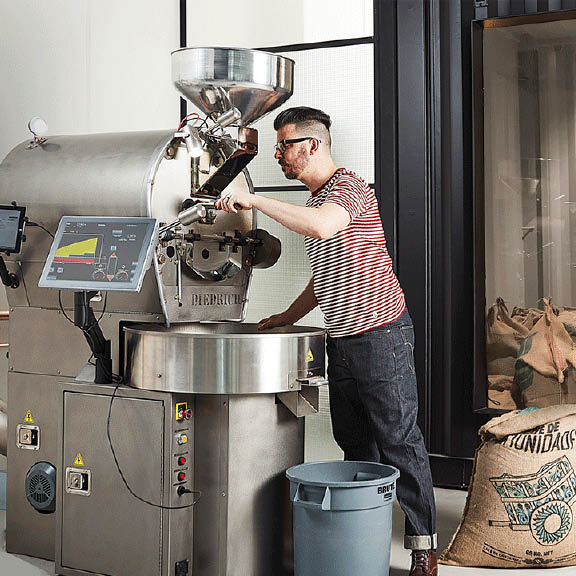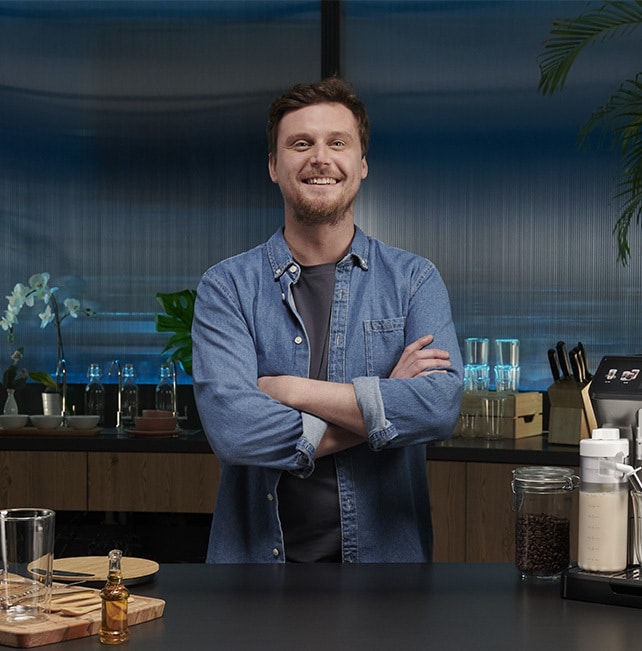- Beans & Roasters
- Sydney Coffee Lounge
The best coffee experience starts here
- Education
The best coffee experience starts here
- Magazine
- Recipes
- About us
The best coffee experience starts here
The best coffee experience starts here

Stories & Interviews
Australia’s coffee scene is special, and that’s largely because it’s driven and epitomised by its specialty bean scene – a confluence of coffee professionalism and café culture – that is recognised globally for its high standards and quality. It stands to reason then that speciality coffee in Australia is growing, as evidenced by rapidly rising retail sales among independent roasters. Specialty coffee is now seen on supermarket shelves, and its inclusion on the menu of a certain fast food restaurant chain has been mass-marketed. But let’s back up a moment. What exactly is ‘specialty’ coffee?
The term ‘specialty coffee’ is attributed to coffee pioneer Erna Knutsen who first used the phrase in the 1970s. She posited that special geographical microclimates produced unique flavour profiles in beans, and that these profiles were then enhanced by roasting and brewing procedures.
Erna’s definition was espoused by the Specialty Coffee Association of America, which was formed in 1982. Nowadays, this is the global Specialty Coffee Association (SCA). And as its namesake suggests, the SCA embodies and represents those involved in the production and trade of specialty coffee worldwide.
According to Craig Simon, multi-award-winning barista champion and coffee roaster, specialty coffee today is recognised as encompassing the work of all people involved in the lifecycle of a coffee bean.
“Specialty coffee is a collective effort of all the links in the coffee value chain, which starts with the farmers,” explains Craig, who is also a coffee ambassador for De’Longhi. “This then extends to the green bean selection and roasters, followed by baristas, and then of course, consumers.”
While specialty coffee is now truly embedded in Australia’s café and coffee-drinking culture, the scene didn’t exist until the commencement of the third millennium.
“I started out back when specialty coffee wasn’t a terminology people were familiar with, even in the industry – which shows my age,” jokes Craig. “In Australia, the espresso scene was initiated by Italian migrants, and cafés tended to serve that traditional, darker Italian roast.”
A pivotal moment in the Melbourne café scene came in 2005, with the opening of St Ali café and roastery in South Melbourne.
“Mark Dundon was one of the key drivers and inspirations for the specialty coffee scene. He brought his learnings on specialty coffee from travels in the United States back to Australia,” notes Craig. “When he founded St Ali, the concept of having lighter roasted, single origin coffee was relatively new, as was having an in-store roastery in the café.”
A lot has happened since then – in fact the specialty coffee scene has boomed.
“Education among roasters and baristas certainly has driven the specialty market, and this in turn has influenced developments in equipment and the competition scene,” expounds Craig. “Those two combined – which are essentially striving for quality of expression in coffee – have influenced consumer expectations of what quality coffee tastes like.”
Notably, this has influenced the level of professionalism and service provided by baristas.
“Back when I was an apprentice in the early noughties, it was just me on the machine – these days, there are often a number of baristas working a coffee bar, and even different blends or single origins available from multiple grinders along that same bar,” explains Craig. “Just looking back over the last decade, the development has been huge.”
Craig points out that the rise of the barista as a viable profession in Australia has been incredibly influential on the local specialty coffee scene.
“Where there has been real change is in the establishment of coffee as a profession in Australia,” expands Craig. “Being a barista was once seen as an itinerant. Baristas were mostly wait staff that would use a coffee machine when required. But specialty coffee drove the need for baristas to have more knowledge and experience with the coffee product.”
Moreover, in Australia, being a barista is not only seen as a viable profession, but one that leads to other career opportunities in the coffee industry. Craig is an example of the type of career trajectory one can take.
“As I once did, a lot of baristas will move from front of house operations to work for roasters, it’s often a natural progression because baristas are generally willing to explore new coffees and the primary difference between specialty coffee and mainstream is the quality of those green beans and what influences those flavour profiles,” says Craig. “I also think back to when I started roasting in 2010, and the processing methods have advanced considerably. Now specialty coffee roasters are consistently good as a group, rather than the outlier.”
Craig points out that accessibility to roasting equipment has also motivated the specialty coffee scene. His own facility in Port Melbourne – which can simplistically be described as a ‘roastery for hire’ – exemplifies this important progression.
“Definitely this type of space has enabled a lot of people in the industry to start up shop sooner – there is no longer that financial barrier in regards to having access to expensive roasting equipment,” explains Craig. “And more importantly, roasting knowledge is shared more easily, and the network of producers and raw materials is more accessible too.”
Certainly, consumers are benefitting from the increased availability of specialty coffee beans, and Craig notes an enlarged appetite for specialty coffee since the pandemic.
“There’s been a massive increase in specialty coffee retail sales in Australia, and I think we can safely assume that people are exploring more, and also have their own domestic equipment to make coffee,” Craig enthuses. “In a time when there haven’t been many positives, this is definitely one that we can celebrate, as it’s indicative of a growing consumer thirst for quality.”
Importantly, this increase in specialty bean retail sales has occurred in tandem with the purchase of domestic coffee machines. Craig ventures that that this is not coincidental – and the two are indeed related.
“When you are making coffee yourself, your awareness around what constitutes a quality coffee changes, because you’re absorbing more information,” he says. “Whereas if a coffee is being made for you, your brain just decides whether that was good or bad in terms of its value for money. Inadvertently that’s what you tend to do, it becomes subconsciously transactional.”
Craig further explains that by developing a deeper connection to coffee through making it, consumers then begin to value coffee differently.
“When you make it yourself it’s much more sensory and involved. Even from that first moment when you open the bag, and you breathe in the beautiful aroma of the freshly roasted beans. All that sensory information helps people make a deeper connection with the product,” Craig adds. “And any time people make a deeper connection with coffee it drives their awareness and understanding of how much is involved to make a good one and how much value there is when it is good!”
To summarise, Craig reiterates the positives of this specialty bean scene growth.
“Now that people in the home are making barista-level coffees, they are also exploring and supporting many independent and boutique roasters, which is a great development,” he says. “I think it’s wonderful that many people are now able to make coffees at home that are comparable to that of a professional barista – at the end of the day, the difference comes down to how much a person cares. Caring enough to learn what makes a quality coffee will separate the great coffees from the average ones.”


Testo vario
Join us
Policies
Support

